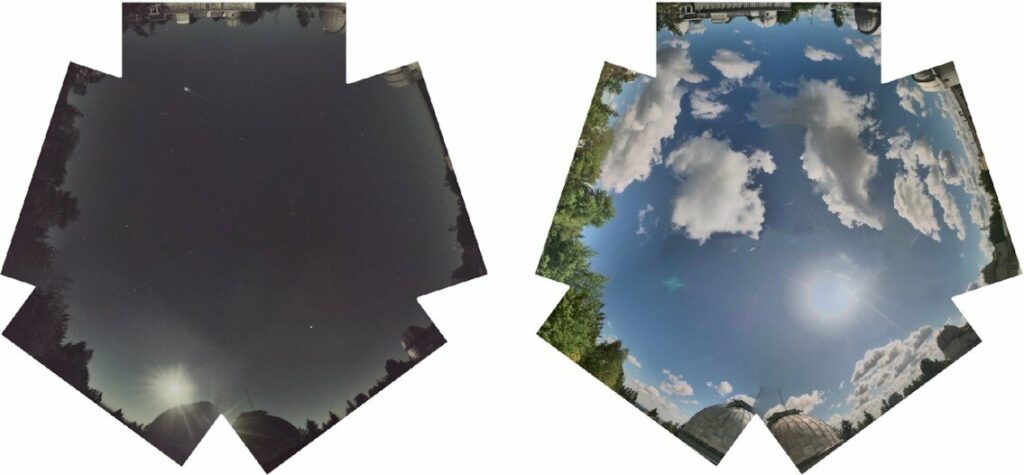Scientists from Germany have created artificial intelligence to recognize phenomena that are observed in the night sky. It will work with data coming from the AllSky7 camera network.

Artificial intelligence for observing the sky
Ilmenau Technical University in Germany has created an artificial intelligence designed to track various phenomena in the night sky and classify them. The research group collaborated with the American Meteor Society, since the main purpose of the system is to track space rocks entering the atmosphere of our planet.
The main data stream for analysis is generated by the AllSky7 system. The American Meteor Society initiated its creation back in 2018. It consists of 85 cameras with a circular view, constantly watching the sky. Now the data received from them is processed manually.

Experts collected about 20 thousand images obtained from AllSky7 and used them to train artificial intelligence. Now it can quickly and accurately classify celestial phenomena and identify interesting researchers among them.
System Capability
Artificial intelligence has already been used to classify objects contained in various astronomical catalogs. They also tried to attract it to search for alien signals. And now it has come specifically to the analysis of observations. According to experts, the developed system is a big step forward compared to everything that has been used so far.
Scientists expect that the new system will help to clarify the amount of space debris in Earth’s orbit. For this purpose, the network of automatic observatories should be expanded and international cooperation programs created.
Artificial intelligence can not only recognize meteors, but also calculate whether they have reached the Earth’s surface. And if this happens, it becomes possible to find the exact place of their fall. Scientists expect that due to this, heavenly stones will be found more often.
According to phys.org
Follow us on Twitter to get the most interesting space news in time
https://twitter.com/ust_magazine
